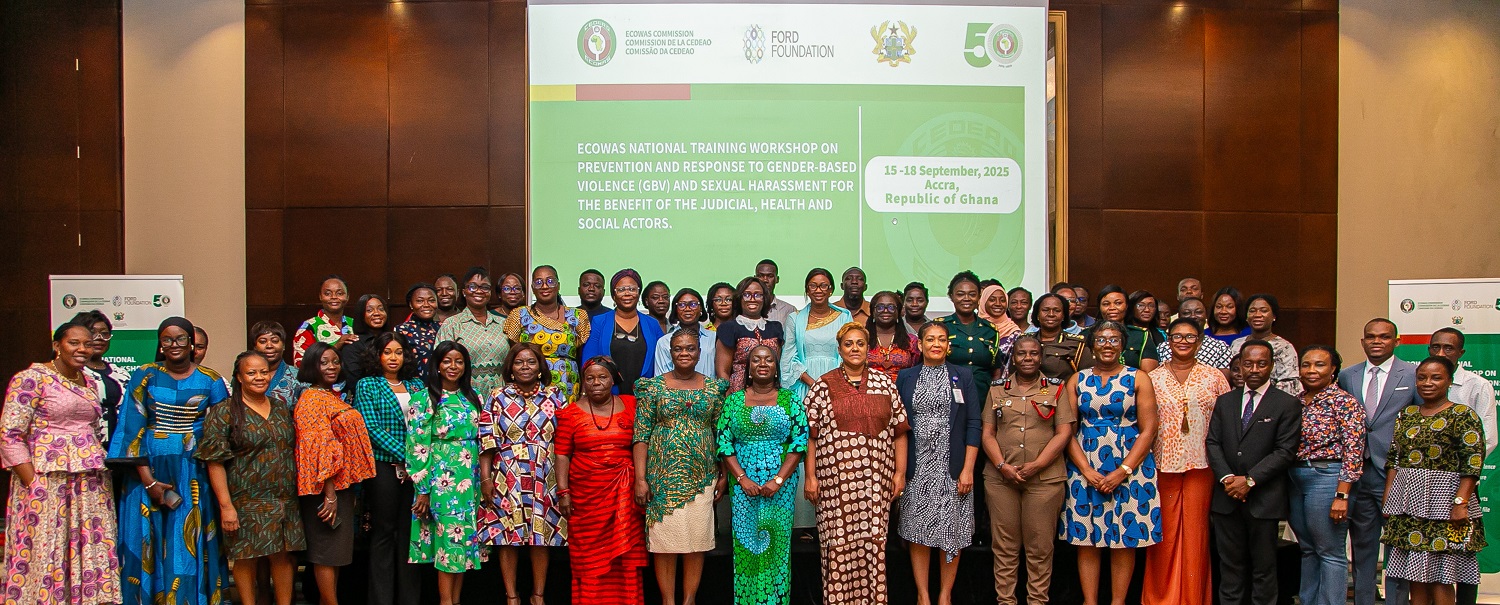The Economic Community of West African States (ECOWAS), through its Gender Development Center (EGDC), organised a national training workshop on the prevention of and response to gender-based violence (GBV) and sexual harassment for judicial, health and social workers from 15th to 18th of September 2025 at the Mövenpick Ambassador Hotel in Accra. A national training workshop on the prevention of and response to gender-based violence (GBV) and sexual harassment, aimed at judicial, health and social actors.
Organised in partnership with the Ministry of Gender, Children and Social Welfare of the Republic of Ghana, this workshop brought together participants from the Ministries of Gender, Health, Justice, Youth, Education, Labour, Security and Defence, the ECOWAS National Office, as well as civil society organisations working to combat GBV and community leaders.
The opening ceremony was presided over by Her Excellency Dr Agness Naa Momo Lartey, Minister of Gender, Children and Social Welfare of Ghana. It was a unique opportunity for participants to deepen their understanding of the concepts, causes, effects and consequences of gender-based violence, as well as the stages of holistic care — judicial, medical and psychosocial — for survivors of GBV, from their admission to health and justice services to their socio-economic, educational and professional reintegration.
Particular emphasis was placed on confidentiality and respect for survivors’ privacy, particularly in the processes of collecting, centralising and sharing data on victims. Discussions were based on a participatory approach combining group work, plenary discussions and the sharing of practical experiences, thereby promoting a common understanding and commitment among the various stakeholders.
The work resulted in the adoption of a national roadmap for the dissemination of training tools on GBV and sexual harassment, prevention in the workplace and educational settings, and the strengthening of judicial and health support for victims.
A final communiqué closed the workshop, calling for increased mobilisation of all stakeholders in favour of a zero-tolerance policy towards gender-based violence and sexual harassment in the Republic of Ghana.

